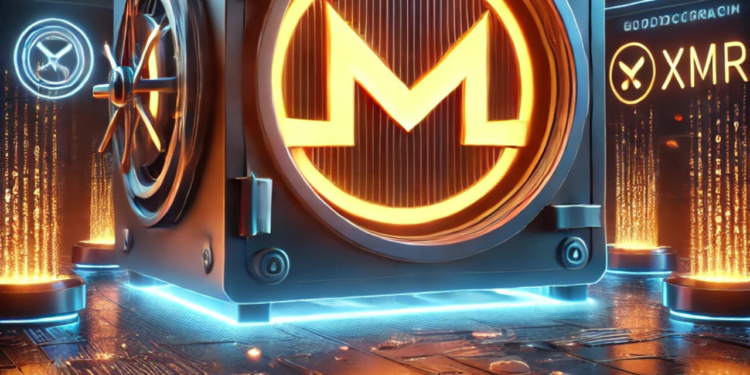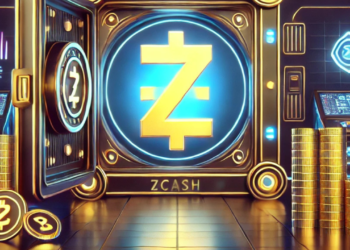In a world where financial transactions are increasingly tracked and monitored, privacy in cryptocurrency has become a critical issue. Monero (XMR) stands out as the leading privacy coin, offering users complete anonymity and untraceable transactions. Unlike Bitcoin, where all transactions are recorded on a transparent public ledger, Monero ensures financial confidentiality by default.
But how does Monero achieve privacy? Is it truly anonymous? And what are the advantages and risks of using it? In this guide, we’ll explore everything you need to know about Monero, from its unique technology to its role in the evolving crypto landscape.
What is Monero (XMR)?
Monero is a privacy-focused cryptocurrency that allows users to send and receive transactions without revealing details like sender, receiver, or amount. It was launched in 2014 as a fork of Bytecoin, using the CryptoNote protocol, which prioritizes privacy.
Key Features of Monero
✅ Private Transactions – Monero obscures transaction details, unlike Bitcoin, where anyone can track funds.
✅ Untraceability – Transactions cannot be linked to a specific user or address.
✅ Fungibility – All XMR coins are equal in value, with no transaction history that could affect usability.
✅ Decentralization – Monero is built to resist censorship and ensure network security.
✅ ASIC Resistance – Monero uses the RandomX mining algorithm, making it more accessible to CPU miners.
Fun Fact: Monero’s name is derived from Esperanto and means “coin.” It emphasizes its universal and decentralized nature!
How Does Monero Ensure Privacy?
Monero uses advanced cryptographic techniques to obscure transaction details:
1. Ring Signatures – Hiding the Sender
Monero mixes a user’s transaction with several others, making it impossible to determine who sent the funds. This works by signing transactions using multiple possible senders, ensuring anonymity.
2. Stealth Addresses – Hiding the Receiver
Instead of revealing the recipient’s wallet address, Monero generates a one-time stealth address for every transaction. This ensures that only the sender and receiver know the actual destination of funds.
3. Ring Confidential Transactions (RingCT) – Hiding the Amount
RingCT encrypts the transaction amount, ensuring that outsiders cannot see how much XMR is being transferred.
4. Dandelion++ – IP Address Protection
Monero also helps protect users’ IP addresses by routing transactions through multiple nodes before broadcasting them, reducing the risk of tracking.
These combined features make Monero one of the most secure and private cryptocurrencies available today.
Fun Fact: Monero was the first cryptocurrency to implement RingCT, making transaction amounts completely hidden!
Why is Monero Important?
Protecting Financial Privacy
In a world where governments, banks, and corporations track financial transactions, Monero provides a way to protect personal financial information.
Preventing Censorship
Many centralized payment systems and even some cryptocurrencies blacklist users based on transaction history. Since Monero transactions are private, no one can censor or restrict access to funds.
Fungibility – Every Coin is Equal
Unlike Bitcoin, where some coins can be flagged for being associated with illicit activities, Monero is completely fungible. No transaction history affects its usability.
Use in the Dark Web and Beyond
While Monero is used for legitimate privacy reasons, it has also gained popularity on the dark web, where anonymous transactions are highly valued. This has led to regulatory scrutiny, but it also proves Monero’s effectiveness in ensuring true financial privacy.
Fun Fact: Monero developers work anonymously under pseudonyms, further aligning with the project’s privacy-first philosophy!
How is Monero Different from Bitcoin?
| Feature | Monero (XMR) | Bitcoin (BTC) |
|---|---|---|
| Privacy | Fully private | Public ledger |
| Fungibility | 100% fungible | Some BTC can be blacklisted |
| Transaction Speed | ~2 minutes | ~10 minutes |
| Mining Algorithm | RandomX (CPU-friendly) | SHA-256 (ASIC-dominated) |
| Scalability | Dynamic block size | Fixed 1MB blocks |
| Adoption | Used for privacy-focused transactions | Widely accepted globally |
While Bitcoin is considered “digital gold,” Monero is “digital cash,” focusing on anonymity and everyday transactions.
How to Store Monero Safely
If you want to hold Monero securely, consider these options:
🔹 Hardware Wallets – Store XMR offline using devices like Trezor or Ledger.
🔹 Official Monero Wallet – Download the Monero GUI or CLI wallet from the official website.
🔹 Cake Wallet & MyMonero – User-friendly mobile wallets for everyday transactions.
🚨 Avoid storing Monero on exchanges, as privacy-focused coins are at risk of being delisted or frozen due to regulatory actions. Bitvavo is one of the platforms where you can trade Monero, but always move your coins to a private wallet for security.
The Future of Monero
Despite regulatory pressures, Monero continues to evolve and strengthen its position as the leading privacy coin. Several developments could shape its future:
🔹 Atomic Swaps – Enabling trustless exchange between Monero and Bitcoin without intermediaries.
🔹 Bulletproofs++ – Improving scalability and reducing transaction sizes.
🔹 Legal Battles Over Privacy Coins – Governments may attempt to ban or restrict privacy coins, but decentralized adoption continues.
With increasing concerns over financial surveillance, Monero’s demand is likely to grow as users seek true privacy in crypto transactions.
Fun Fact: Monero has an active research lab dedicated to improving privacy technologies in blockchain systems!
Conclusion: Is Monero Worth Using?
Monero is the gold standard for financial privacy in crypto. Whether you’re a privacy advocate, a trader looking for confidential transactions, or simply someone who values financial freedom, Monero provides a secure, private, and untraceable way to transact.
However, regulatory uncertainty and exchange restrictions may pose challenges. If privacy is your top priority, Monero remains the best choice in 2025.
🚀 Will Monero remain the king of privacy coins? Let us know your thoughts!
Frequently Asked Questions (FAQ)
- Is Monero legal?
✅ Monero is legal in most countries, but some governments have banned or restricted privacy coins. - Can Monero transactions be traced?
❌ No, Monero transactions are designed to be completely untraceable using advanced cryptographic methods. - Is Monero better than Bitcoin?
⚖️ It depends on your needs. If privacy is your priority, Monero is better. If you want mainstream adoption, Bitcoin is superior. - How can I buy Monero?
💳 You can buy Monero on select exchanges like Bitvavo or via peer-to-peer (P2P) trading platforms.
Disclaimer
This article is for informational purposes only and should not be considered financial or investment advice. Always conduct your own research before making investment decisions.
Affiliate Link: For secure crypto storage, check out Trezor Hardware Wallet. 🔒










